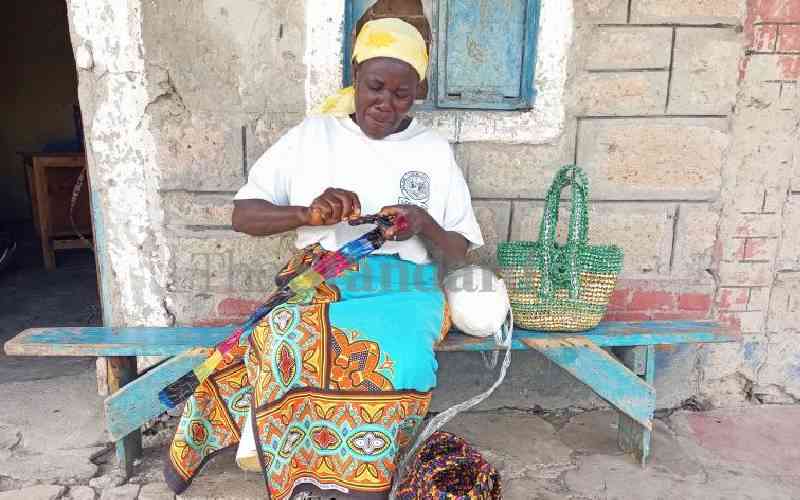×
The Standard e-Paper
Fearless, Trusted News

Inside a one-roomed house at Konza market in Machakos County, a team of women is busy, their fingers methodically weaving the baskets sitting on their laps as they engage in lively banter.
Ordinarily, in this part of the country, the baskets would be made from sisal threads. But here, the women belonging to Mama Watoto Self Help Group are using plastic yarns made from waste plastics collected at Dandora dumpsite in Nairobi county.